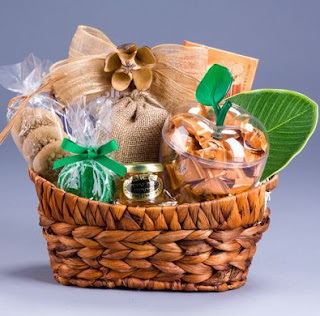 This is the season where words like Rosh Hashanah, Jewish New Year, High Holy Days, apples and honey, and shofar are bandied about with wild abandon. We thought it would be nice if someone could explain what's going on in a concise and coherent manner.
This is the season where words like Rosh Hashanah, Jewish New Year, High Holy Days, apples and honey, and shofar are bandied about with wild abandon. We thought it would be nice if someone could explain what's going on in a concise and coherent manner.The holiday does, in fact, go by many names. The day has Biblical origin, and there it is referred to as the Day of Blowing the Horn. Alternatively, the Bible calls it the Day of Remembrance for the Blowing of the Horn. It is only later in history that the name Rosh Hashanah, Hebrew for "First of the Year," came into use.
The Biblical term for it reflects the positive commandment to sound the shofar on the holiday. The shofar is a hollowed-out ram's horn and carries religious and cultural significance. The more commonly known title of Rosh Hashanah emphasizes the day's standing as the beginning of the Jewish year. Though there are three other Jewish New Years at various times throughout the Hebrew calendar year, Rosh Hashanah marks the beginning of the Jewish calendar year.
Rosh Hashanah also begins a time period collectively known as the Yamim Nora'im, or Days of Awe. This time marks the yearly judgment by God and culminates with the Day of Atonement (Yom Kippur). The judgment begins on Rosh Hashanah and is more or less finalized by Yom Kippur. Thus, some of the customs of Rosh Hashanah reflect the somber undertones.
Two customs emphasizing the judgment are the apple in honey and Shana Tova greetings. The apple in honey is actually only one of several traditional foods eaten on these auspicious days. The overarching principle of all these customary foods is to remind people to beseech God for a good judgement. Apples in honey are a sweet delicacy, indicative of a sweet judgement.
Shana Tova greetings follow similar logic, but are more outward looking. Before the festival and on the festival, Jewish people around the world greet each other with blessings for a positive judgment and a sweet year. Whatever language the blessing is said in, it bears the same intent.
Another form of Shana Tova greetings involves food gift baskets. Though there is no real basis in tradition for exchanging kosher gift baskets during this season, it can still be a worthwhile endeavor. The exchange sincerely reflects wishes for a good year while serving to cement relationships between friends and loved ones.
The Sweet Shoppe provides beautiful gift baskets for every occasion and carries a full line of Shana Tova gifts. Call today and arrange for a gift basket delivery to a friend or loved one!